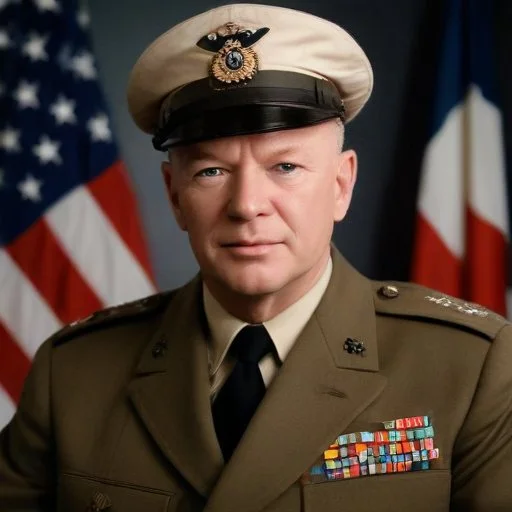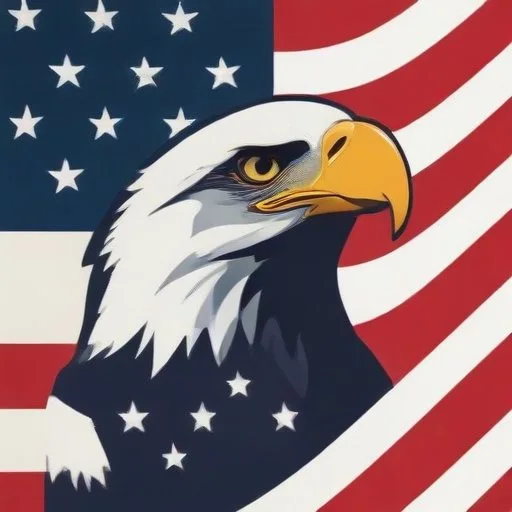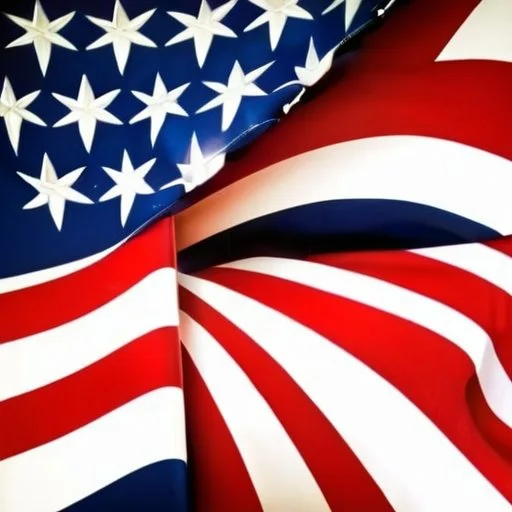US General Eisenhower becomes NATO-Europe Supreme Commander
Dwight D. Eisenhower, a renowned US General and seasoned military strategist, took the reins as the Supreme Commander of NATO-Europe on November 19, 1950. This pivotal appointment came at a critical juncture in the Cold War era, as tensions between the East and West were escalating. Eisenhower's leadership was instrumental in strengthening the North Atlantic Alliance, fostering cooperation among member nations, and bolstering Europe's defenses against the Soviet threat. His esteemed military background, diplomatic acumen, and diplomatic skills made him the ideal candidate for this prestigious post, paving the way for a more unified and resilient Western Europe.
US General Dwight D. Eisenhower becomes Supreme Commander of NATOEurope: A Pivotal Moment in the Cold War
A Champion of Unity and Defense
On November 19, 1950, US General
Dwight D. Eisenhower took the reins as the Supreme Commander of NATOEurope, a move that would cement his legacy as a champion of unity and defense in the face of escalating tensions between the East and West. This critical appointment marked a turning point in the Cold War era, as Eisenhower's leadership would go on to shape the course of Western Europe's defense and diplomacy.
Historical Background: A World in Crisis
The early 1950s were marked by heightened tensions between the United States and the Soviet Union, as the world teetered on the brink of nuclear warfare. The North Atlantic Treaty Organization (NATO), established in 1949, was struggling to find its footing, with member nations divided on how to respond to the Soviet threat.
The Rise of Eisenhower
Enter Dwight D. Eisenhower, a seasoned military strategist with a proven track record of leadership. Having played a crucial role in the Allied victory in World War II, Eisenhower brought a wealth of experience and diplomatic acumen to the table. His appointment as Supreme Commander of NATOEurope was a calculated move to shore up the alliance's defenses and foster cooperation among member nations.
- Dwight D. Eisenhower: The newly appointed Supreme Commander of NATOEurope, known for his military prowess and diplomatic skills.
- Harry S. Truman: The 33rd President of the United States, who played a key role in Eisenhower's appointment.
- Winston Churchill: The British Prime Minister, who was a vocal supporter of Eisenhower's leadership.
- Joseph Stalin: The Soviet Premier, whose aggressive expansionist policies posed a significant threat to Western Europe.
Major Outcomes and Impacts
Eisenhower's leadership had far-reaching consequences for NATO and the broader Cold War landscape:
- Strengthened Defenses: Eisenhower oversaw a significant increase in military spending and troop deployments, bolstering Western Europe's defenses against the Soviet threat.
- Unified Alliance: Eisenhower's diplomatic efforts helped to forge a more unified NATO alliance, with member nations working together to present a united front against the Soviet Union.
- Containment Strategy: Eisenhower's leadership helped to implement a containment strategy, aimed at preventing the spread of communism in Europe.
Personal Accounts and Anecdotes
Eisenhower's leadership was marked by his distinctive style and charisma. According to one anecdote, Eisenhower would often conduct meetings while standing up, a habit he developed during his time in the military. This approach allowed him to think more clearly and make decisions quickly, earning him the respect and admiration of his colleagues.
_impact on the Future:
Eisenhower's tenure as Supreme Commander of NATOEurope paved the way for a more resilient and unified Western Europe. His leadership set the stage for future NATO operations, including the Berlin Airlift and the Cuban Missile Crisis. Today, Eisenhower's legacy serves as a reminder of the importance of strong leadership and diplomatic cooperation in the face of global uncertainty.
Trivia and Fun Facts
- Eisenhower was the first Supreme Commander of NATOEurope, a role that would later be held by notable figures such as General Lyman L. Lemnitzer and General Alexander Haig.
- Eisenhower's appointment was initially met with skepticism by some NATO member nations, who doubted his ability to lead the alliance.
- Eisenhower's leadership style was marked by his emphasis on teamwork and collaboration, earning him the nickname "the team player."
Cultural and Social Influences
Eisenhower's leadership had a profound impact on Western Europe's cultural and social landscape. His emphasis on unity and cooperation helped to foster a sense of shared purpose among NATO member nations, paving the way for greater economic and cultural integration.
Conclusion:
US General Dwight D. Eisenhower's appointment as Supreme Commander of NATOEurope marked a pivotal moment in the Cold War era. Through his leadership, Eisenhower helped to strengthening NATO's defenses, foster unity among member nations, and shape the course of Western Europe's defense and diplomacy. Today, his legacy serves as a powerful reminder of the importance of strong leadership and cooperation in the face of global uncertainty.
Detailed Historical Story
Beyond his military prowess, Eisenhower's appointment as Supreme Commander of NATOEurope marked a significant shift in the Cold War landscape. His leadership style, honed during World War II, emphasized collaboration and unity, which resonated with European leaders seeking to rebuild their war-torn nations. This approach helped to foster a sense of shared purpose among NATO member nations, paving the way for greater economic and cultural integration.
In the months following his appointment, Eisenhower embarked on a listening tour, meeting with European leaders to better understand their concerns and priorities. This personal touch helped to build trust and rapport, laying the groundwork for future diplomatic efforts.
Eisenhower's commitment to NATO was unwavering, and he worked tirelessly to strengthen the alliance's defenses. Under his leadership, NATO member nations began to coordinate their military efforts, sharing resources and expertise to create a more unified front against the Soviet threat.

Character Analysis
Winston Churchill, the British Prime Minister, was a vocal supporter of Eisenhower's leadership. The two men shared a deep respect for one another, forged during World War II, and Churchill saw Eisenhower as a kindred spirit, dedicated to preserving Western values and defending against Soviet aggression.
Churchill's endorsement carried significant weight, helping to ease concerns among some NATO member nations about Eisenhower's ability to lead the alliance. As a respected statesman and seasoned leader, Churchill's backing lent credibility to Eisenhower's appointment, paving the way for greater cooperation among NATO nations.
Examination of Cultural Influence
Eisenhower's leadership had a profound impact on Western Europe's cultural landscape. His emphasis on unity and cooperation helped to foster a sense of shared purpose among NATO member nations, paving the way for greater economic and cultural integration.
The Marshall Plan, implemented in 1948, had already set the stage for economic cooperation, providing billions of dollars in aid to war-torn Europe. Eisenhower's leadership helped to build on this momentum, encouraging cultural exchange programs and joint economic initiatives that would eventually give rise to the European Union.
],
{EIR

Study of Geopolitical Factors
Eisenhower's leadership coincided with a pivotal moment in the Cold War, as the Soviet Union, under Joseph Stalin, began to adopt a more aggressive posture. The Berlin Blockade, imposed in 1948, had already heightened tensions, and Eisenhower's appointment came at a time when Western Europe was deeply concerned about its ability to defend itself against Soviet aggression.
In this context, Eisenhower's leadership played a crucial role in shoring up NATO's defenses and fostering a sense of unity among member nations. His commitment to collective defense helped to deter Soviet aggression, creating a more stable and secure environment in which Western Europe could thrive.


